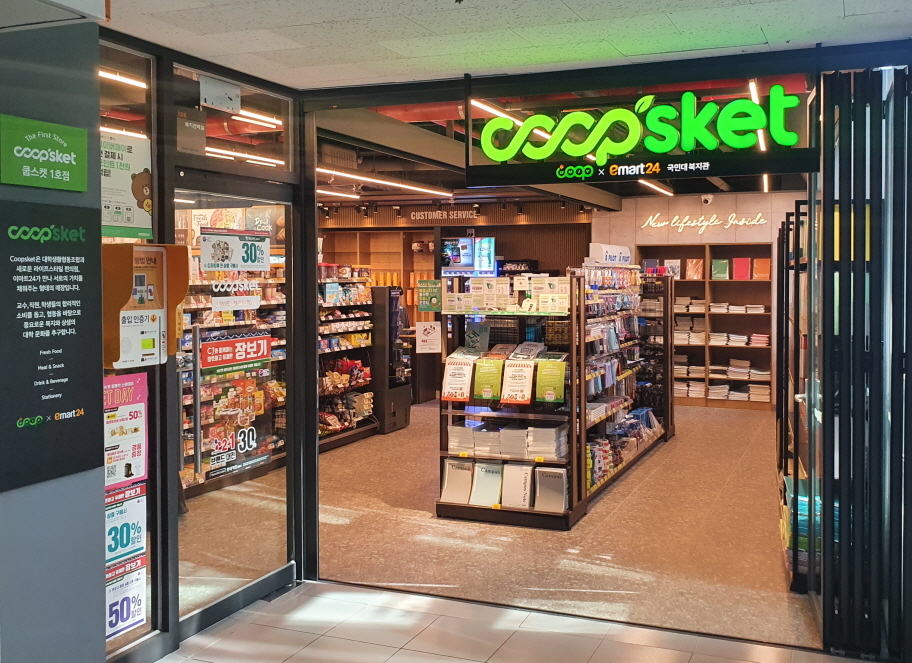Packaged meals in convenience stores gain popularity amid pandemic
By Kim Hae-yeonPublished : Dec. 29, 2020 - 19:54

Park Su-min, who works for a production company in Seoul, starts his day late in the afternoon, grabbing a packaged meal, or “dosirak” in Korean, at a convenience store on his way to work. One reason is to avoid public transportation when it’s most crowded, and the other is to keep up with the toughened social distancing guidelines.
“Before the level hit 2.5 in Seoul, I used to hang out with colleagues during lunchtime, often waiting in lines to try out popular restaurants. But instead, these days I have my favorite go-to convenience stores for the best dosirak options,” Park said with a bitter smile. “It’s frustrating sometimes, but at least the price is twice as cheap as dining out.”
Throughout the nation, 7-Eleven’s packaged meal sales increased 19.4 percent year-on-year Nov. 8-27. They showed a drastic 28.2 percent jump in sales just in the capital region. Sales at another convenience store chain, E-Mart 24, increased 10.7 percent this year.
The tightened social distancing level has changed the dining culture for office workers. It has become common to see designated cafeteria spots inside office buildings, where people bring their own meals and eat alone with partitions in between tables. Convenience store lunches are a common sight.
The rapid increase in the consumption of packaged lunches has led convenience stores to offer differentiated products. These include separate options for breakfast, lunch, dinner and snacks.
Healthier options are always on standby with the nutritional breakdown detailed on the packaging, breaking the common stereotype that premade packaged food choices are not healthy choices.
“Customers would sometimes drop by in the morning on their way to work, and ask us to store a specific dosirak for them when it arrives,” said a part-time employee at GS25 in Gongdeok Station, one of the busiest office districts in Seoul. “Dosirak are the first ones to disappear from the shelves these days.”
Convenience stores are also looking for ways to collaborate with local products to support regional agriculture, such as the recently launched “National Park lunchbox series,” while also looking to raise brand awareness.
By Kim Hae-yeon (hykim@heraldcorp.com)
“Before the level hit 2.5 in Seoul, I used to hang out with colleagues during lunchtime, often waiting in lines to try out popular restaurants. But instead, these days I have my favorite go-to convenience stores for the best dosirak options,” Park said with a bitter smile. “It’s frustrating sometimes, but at least the price is twice as cheap as dining out.”
Throughout the nation, 7-Eleven’s packaged meal sales increased 19.4 percent year-on-year Nov. 8-27. They showed a drastic 28.2 percent jump in sales just in the capital region. Sales at another convenience store chain, E-Mart 24, increased 10.7 percent this year.
The tightened social distancing level has changed the dining culture for office workers. It has become common to see designated cafeteria spots inside office buildings, where people bring their own meals and eat alone with partitions in between tables. Convenience store lunches are a common sight.
The rapid increase in the consumption of packaged lunches has led convenience stores to offer differentiated products. These include separate options for breakfast, lunch, dinner and snacks.
Healthier options are always on standby with the nutritional breakdown detailed on the packaging, breaking the common stereotype that premade packaged food choices are not healthy choices.
“Customers would sometimes drop by in the morning on their way to work, and ask us to store a specific dosirak for them when it arrives,” said a part-time employee at GS25 in Gongdeok Station, one of the busiest office districts in Seoul. “Dosirak are the first ones to disappear from the shelves these days.”
Convenience stores are also looking for ways to collaborate with local products to support regional agriculture, such as the recently launched “National Park lunchbox series,” while also looking to raise brand awareness.
By Kim Hae-yeon (hykim@heraldcorp.com)


![[Exclusive] Korean military set to ban iPhones over 'security' concerns](http://res.heraldm.com/phpwas/restmb_idxmake.php?idx=644&simg=/content/image/2024/04/23/20240423050599_0.jpg&u=20240423183955)

![[Graphic News] 77% of young Koreans still financially dependent](http://res.heraldm.com/phpwas/restmb_idxmake.php?idx=644&simg=/content/image/2024/04/22/20240422050762_0.gif&u=)



![[Pressure points] Leggings in public: Fashion statement or social faux pas?](http://res.heraldm.com/phpwas/restmb_idxmake.php?idx=644&simg=/content/image/2024/04/23/20240423050669_0.jpg&u=)










